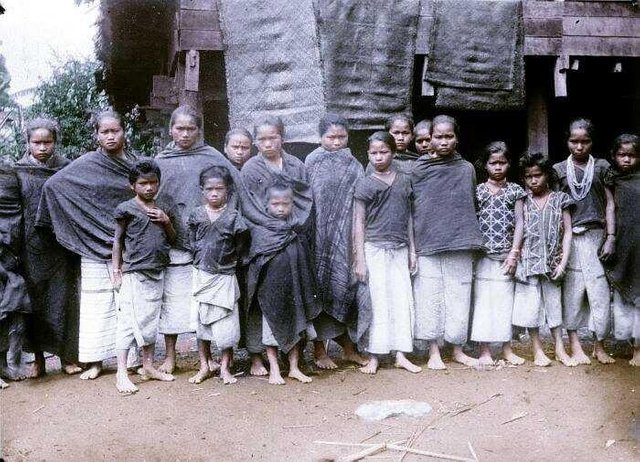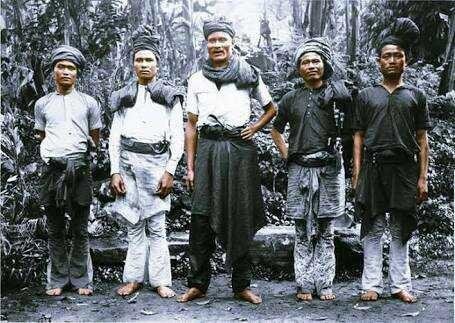History and culture of the Gayo tribe of Aceh


History and culture of the Gayo tribe of Aceh. Gayo tribe is one ethnic tribe who inhabit Gayo highlands in central Aceh province. Parts of Gayo tribal areas include Bener Meriah, Central Aceh and Gayo Lues districts. Some also inhabited the area in East Aceh in the district of Serba Jadi, Peunaron, and Simpang Jernih. Gayo tribe people are Muslim and are known to be religious.
The ethnic Gayo tribe belong to the Malay Proto race originating from India. The arrival of this nation is estimated to come to Indonesia around 2000 years BC. Characteristic of this nation is black, small body and curly hair. Gayo tribe consists of three groups, namely Gayo marine society inhabiting the area of Central Aceh and Bener Meriah, Gayo Lues who inhabit Gayo Lues and Southeast Aceh and Gayo Blang who inhabit some districts in Aceh Tamiang.
Gayo word comes from the word Pegayon which means where the clear spring where there are holy fish (clean) and crabs. It is said, first a group of Karo Batak immigrants came to Blangkejeren by crossing a village called Porang. On the way they encountered a village that contained a lake inhabited by a large crab, then they saw the animal and yelled Gayo Gayo. From here the area is named with Gayo.
Language
The language used is Gayo. The language is related to the Karo Batak language in North Sumatra and includes the language group called "Northwest Sumatra-Barrier Islands" of the Austronesian language family. The Gayo language dialect has some variation due to the influence of the outside language. Gayo language in Lokop, slightly different from the Gayo language in Gayo Kalul, Gayo Lut, Linge and Gayo Lues. This is due to the more dominant influence of Acehnese language in East Aceh. While the Gayo Kalul language, in Aceh Tamiang, there is little Malay influence because it is closer to North Sumatra. Later, Gayo Lues is more influenced by Alas language and Karo language because of the more interaction with both tribes, especially Gayo community in the district of Southeast Aceh.
Dialect on Gayo tribe, according to M.J. Melalatoa, Gayo Lut dialect consists of subdialek Gayo Lut and Deret, while Hill and Cik are sub-subdialek. Similarly, Gayo Lues dialect consists of subdialek Gayo Lues and Serbejadi. Subdialek Serbejadi itself includes sub-subdialek Serbejadi and Lukup (1981: 53). While Baihaqi Ak., Et al mention the number of dialects of Gayo language in accordance with the spread of Gayo tribe (Gayo Lut, Deret, Gayo Lues, Lokop / Serbejadi and Kalul). However, Gayo Lues dialect, Gayo Lut, Gayo Lukup / Serbejadi and Gayo Series can be said to be the same or very close together. In Gayo Lut itself there are two dialects there called the dialect of Hill and Cik (1981: 1).
Clan
Only a small part of the Gayo community still lists the names of their clans, especially those living in the Bebesen area. It is only to know the origin / lineage.
Here is a list of clans in Gayo tribe:
ArigaCiberoLingeMelalaMunteTebeAlga
History
In the 11th century, the Linge Kingdom was founded by the Gayo people during the reign of Sultan Makhdum Johan Sovereign Mahmud Shah of the Perlak Sultanate. This information is known from the information of King Uyem and his son King Ranta King Cik Bebesen and from Zainuddin that is from the Kings of Genesis Hill who both had ruled as king in the Dutch colonial era.
King Linge I, is said to have 4 children. The oldest is a woman named Empu Beru or Datu Beru, others Sebayak Lingga (Ali Syah), Meurah Johan (Johan Syah) and Meurah Lingga (Malamsyah).
Sebayak Lingga then wandered to the land of Karo and opened the country there he was known by Raja Lingga Sibayak. Meurah Johan wanders to Aceh Besar and established his kingdom named Lam Krak or Lam Oeii or known as Lamuri or Lamuri Sultanate. This means the Sultanate of Lamuri above was founded by Meurah Johan while Meurah Lingga lived in Linge, Gayo, who subsequently became the Linge king descended. Meurah Silu migrated to Pasai area and became an employee of Daya Sultanate in Pasai. Meurah Mege himself was buried in Wih ni Rayang on the Keramil Paluh Slope in Linge area, Central Aceh. Until now still maintained and respected by the population.
The cause of migration is unknown. However, it is narrated that King Linge is more fond of his youngest Meurah Mege. So that makes the other children prefer to wander.
@resteemator is a new bot casting votes for its followers. Follow @resteemator and vote this comment to increase your chance to be voted in the future!
Aceh ada bangsa pejuang...
Posted using Partiko Android